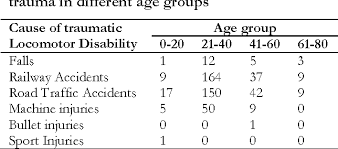What does mean? Who gets to define it? How do we define it? These and many more questions are often asked by those who seek disability insurance. Here’s a list of some of the most common types of disabilities.
How to get Employment after Being Disabled
“Work-Related Injuries?” These include any unexpected accidents at work. Yes, they do happen. They aren’t usually work-related so employers are not liable. For example, if your computer monitor is dropped and it breaks, you could sue the company that provided that piece of glass furniture. But then again, if you get hurt on the job or during a job search, those are pretty much covered.
How to get Employment after Being Disabled
“freak accidents”? These two are quite likely to be listed as “freelance causes for disability.” Like the keyboard boy, who dropped his notebook in the toilet and ripped it. Or the carpenter who accidentally NDIS Doncaster his hand-held axe on his head, causing it to break. These are likely not covered by worker’s comp.
How to get Employment after Being Disabled
“Disability Tax Credit” President Bush started this tax credit in order to help disabled people who couldn’t work. No matter if someone is disabled, they can claim this credit. This is good news for those who file their taxes on their own.
How to get Employment after Being Disabled
“Disability Insurance”? This is something that some employers offer, but not all. It is often offered to people in dangerous jobs. It is offered to those in dangerous jobs, such as coal miners or construction workers. This is a program that assists disabled workers in becoming more employable. If you are laid off, you might be interested in this.
“Personal Injury”? You may need disability insurance if you have been injured at work. This will cover your medical expenses, lost wages, pain and suffering, as well as any other costs. Be aware though, that this is not something that your employer can give you as a fringe benefit. It must be paid for by you. This is one of those “hidden” benefits that you need to look into.
What is “Job Training?” For those who are disabled, there are many job training programs. Usually they require some type of job placement assistance. Find out what is available in the area. You might be able get part-time work or some type apprenticeship training. This can be extremely helpful for someone who is having trouble finding employment.
It is not always easy to determine what type of disability is valid. Many disabled people work in utility jobs, delivering products. This is a form of employment that takes place at home. It means that the government will not consider a disabled person’s disability until they start working for themselves. This can be a very tricky and confusing subject matter. Don’t hesitate to ask questions and to do a little research into what exactly is covered by your particular state’s laws.
There are two options for you if you have medical issues that are affecting your ability to work. First, see a doctor and ask him or her to write a letter explaining your disability. The doctor will then file your medical paperwork with Disability Determination Services (DDS) if you are accepted. The federal agency responsible for handling disability claims is the DSMS. Depending on the severity of your medical condition and your claim, this agency will either grant or deny it.
Another route is to file “requests for reasonable accommodation” with the local disability office. Each local office will have a different approach to this request, so be sure to do your research before you submit it. You should be prepared to list all of your medical conditions and provide proof that these conditions are causing you disability. You will also need very specific information about the job opportunities you are interested in. This will often involve filling out a worker’s compensation claim. To ensure everything goes smoothly, you’ll need to consult an experienced employment attorney.
A final option you have is to appeal to the United States Equal Employment Opportunity Commission (EEOC). They can also discipline your employer or award you damages if you have been discriminated against. Before you begin the process, it is important to ensure that you are working with an experienced disability lawyer. He or she will help you determine what to do in the event that your employer refuses to hire you for the job you need.
If you feel discriminated against because you have a disability, you should take immediate action. You may be protected by laws at both the local and national level. In addition, you may want to join or participate in a disability rights group in your area. These groups are informative and can help to find the support you need in your legal case. Once you’ve made the decision to pursue a legal case, you can then move on to securing the job you want.
